Projects
We conduct research on several pertinent areas including, but not limited to:
Emotion Regulation
The way people regulate (i.e., modify or manage) their emotions has important implications for mental health and well-being. We study patterns of emotion regulation to identify and understand how emotions can be best regulated across different contexts.
Alexithymia
Difficulties identifying and describing one’s own emotions (i.e., alexithymia) appear to influence a plethora of emotional problems and psychological difficulties (e.g., most psychopathologies). We continue researching the conceptualisation, assessment, and treatment of alexithymia.
Beliefs about Emotions
Beliefs about emotions (e.g., beliefs about whether emotions can be controlled, or how useful they are) influence psychological well being. Research shows that people who believe emotions are uncontrollable use less adaptive regulation strategies like cognitive reappraisal, have poorer social adjustment, and tend to have more severe mental health symptoms. We are investigating how beliefs about emotions exert this influence, how these beliefs are related to different ages, genders, and cultures, the best way to assess them, and how beliefs about emotions can be targeted in treatment.
Mapping the Emotional Profiles of Mental Disorders
There are high rates of comorbidity between many mental health disorder categories. What is it that makes depressive, anxiety, personality, eating, and substance use disorders similar? What is it that separates them? Problems in emotional functioning play a key role in all these disorder types; we have research programs aiming to systematically map the similarities and differences between common disorders in terms of their emotional profiles (e.g., patterns of emotion regulation, alexithymia, emotional reactivity, etc.). This type of approach underpins the transdiagnostic focus of much of our work.
Psychometric Assessment
The assessment of emotion and psychopathology is essential for informing effective treatment. This assessment can be conducted using self-report (e.g., psychometric questionnaires) and objective measures (e.g., psychophysiological techniques). We have created a suite of assessment tools, called the Perth series of measures (see ‘resources’ section of this website), to allow clinically relevant emotional constructs to be assessed more comprehensively. An important part of our research focuses on the creation of new tools, and their validation in different population types.
Transdiagnostic Treatment of Emotional Disorders
There are high rates of co-morbidity between different categories of mental health disorders, creating problems for clinicians trying to treat these disorders. We have designed a transdiagnostic group therapy intervention that targets core emotional constructs underlying many forms of psychopathology (e.g., emotion regulation, emotional reactivity, alexithymia, beliefs about emotions). The skills and tools involved in this group can help participants improve their mental health and day-to-day life. We have an ongoing research program focused on optimising the effectiveness of this intervention, and testing its impact in different population types.
Emotion Coherence
Most definitions of emotion involve the notion of coordinated responses across the experiential, behavioural and physiological channels of the emotion system. In other words, these systems normally respond coherently to emotion-inducing information. It is believed that the higher the coherence (i.e., correlations among the channels) the healthier the psychological outlook. However, researchers report mixed findings, and the possible mechanisms mediating the relationship between emotional coherence and psychological well-being are not clear. We have an ongoing project investigating this area, particularly the coherence between subjective reports of emotional experience and objectively measured psychophysiological responses.
Mindfulness
Mindfulness is the enhanced, non-judgemental attention to and awareness of current experience. Mindfulness has received increased attention in the last few decades, both in popular and scientific media. Mindfulness based interventions (MBIs) are intensive, skills-based programs aimed at reducing distress and improving well-being. There is a need to conduct research on the exact mechanisms through which mindfulness exerts its effects. We are investigating this area with particular interest in the way mindfulness relates to emotion regulation, alexithymia, and emotional reactivity.
The Latent Structure of Emotion and Psychopathology
Fundamental questions exist about how various emotional constructs or categories of psychopathology should be defined. We utilise advanced statistical methods (i.e., structural equation modelling) to address core questions about the structure and definition of these constructs. Some members of our group are also members of the HiTOP (Hierarchical Taxonomy of Psychopathology) consortium, an international group of researchers focused on mapping the underlying dimensions of psychopathology and how they relate to each other (i.e., with the goal of informing more accurate diagnostic systems for mental illness). Thus, our goals in this area align with the work of the HiTOP consortium.
Loneliness
Loneliness is a growing public health epidemic, with problematic impacts on mental and physical health. We are examining the causes of loneliness, it’s links to emotion regulation and psychopathology, and how loneliness can be best addressed in treatment.
Substance Use Disorders
Substance use problems are often comorbid with emotional disorders like depression and anxiety. We are examining how substance use disorders can be understood within an emotion regulation framework, and how this can inform better assessment and treatment of alcohol or other drug problems.
Empathy
Empathy is an important factor in sound interpersonal functioning. We have an ongoing research program examining the different components of empathy (e.g., cognitive empathy and affective empathy) and how empathy levels can influence mental health and well-being.
ADHD and Autism
ADHD and autism can feature difficulties in emotional functioning (e.g., emotion regulation, alexithymia). We are examining the role of emotional constructs in ADHD and autism, and how such understanding can best inform early identification and treatment to optimise social-emotional functioning.
Acquired Brain Injury
Emotional disorders and problems in emotional functioning are prominent issues after brain injury, which can result in substantial impairments in daily life. We are involved in several ongoing research programs examining the neuropsychology of emotional functioning, and how emotional problems can be assessed and treated to improve the quality of life of individuals with a brain injury.
